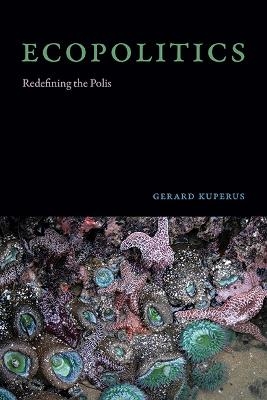
Ecopolitics
Redefining the Polis
Seiten
2023
State University of New York Press (Verlag)
978-1-4384-9425-8 (ISBN)
State University of New York Press (Verlag)
978-1-4384-9425-8 (ISBN)
Analyzes the different feelings, drives and instincts we have inherited from other species, to suggest a new understanding of ourselves as part of an eco-political community.
Against the idea of social contract theories that suggest humans invented the political, Gerard Kuperus argues that we have always been political and that our species came into existence in a world that was already political. By studying the rich social and political lives of other animals, Ecopolitics provides suggestions for how to think and feel differently about ourselves, our relationship to other people, and the places and beings around us. Kuperus suggests we understand ourselves as part of an ecopolitical community consisting of humans and other living beings as well as inanimate objects. By recognizing nature itself as utterly political and seeing ourselves as a part of this larger political unity, we can come to face the real challenges of our times. This means that we are not simply putting ourselves in nature as we are. We are also changing who we are.
Against the idea of social contract theories that suggest humans invented the political, Gerard Kuperus argues that we have always been political and that our species came into existence in a world that was already political. By studying the rich social and political lives of other animals, Ecopolitics provides suggestions for how to think and feel differently about ourselves, our relationship to other people, and the places and beings around us. Kuperus suggests we understand ourselves as part of an ecopolitical community consisting of humans and other living beings as well as inanimate objects. By recognizing nature itself as utterly political and seeing ourselves as a part of this larger political unity, we can come to face the real challenges of our times. This means that we are not simply putting ourselves in nature as we are. We are also changing who we are.
Gerard Kuperus is Professor of Philosophy at the University of San Francisco. He is the author of Ecopolitical Homelessness: Defining Place in an Unsettled World.
Acknowledgments
Introduction: Ecopolitics beyond the Human World
1. Salmon Politics and Latour’s Gaia
2. Crossing Borders: On Rats, Mice, and Other Decolonizing Packs
3. Chimpanzee Politics: Towards Empathy
4. From the Tidepool to Human Migration: The Biological Roots of Politics
5. Human and Other Ants: Decentralized Ecopolitics
Conclusion: Ecopolitics as a Decentralized Basis for a New Future
Notes
Bibliography
Index
| Erscheinungsdatum | 05.09.2023 |
|---|---|
| Reihe/Serie | SUNY series in Environmental Philosophy and Ethics |
| Zusatzinfo | Total Illustrations: 0 |
| Verlagsort | Albany, NY |
| Sprache | englisch |
| Maße | 152 x 229 mm |
| Gewicht | 227 g |
| Themenwelt | Geisteswissenschaften ► Philosophie |
| Geisteswissenschaften ► Sprach- / Literaturwissenschaft ► Anglistik / Amerikanistik | |
| Geisteswissenschaften ► Sprach- / Literaturwissenschaft ► Literaturwissenschaft | |
| Naturwissenschaften ► Biologie ► Ökologie / Naturschutz | |
| Technik | |
| ISBN-10 | 1-4384-9425-4 / 1438494254 |
| ISBN-13 | 978-1-4384-9425-8 / 9781438494258 |
| Zustand | Neuware |
| Informationen gemäß Produktsicherheitsverordnung (GPSR) | |
| Haben Sie eine Frage zum Produkt? |
Mehr entdecken
aus dem Bereich
aus dem Bereich
Poetik eines sozialen Urteils
Buch | Hardcover (2023)
De Gruyter (Verlag)
59,95 €
Buch | Softcover (2024)
belleville (Verlag)
20,00 €


